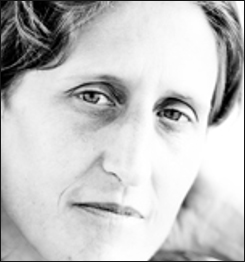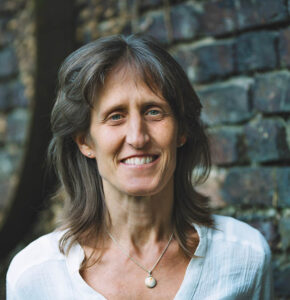
What is Felt Sensing?
 It is probably one of the most powerful tools that we have to access our own inner navigator. Felt Sensing allows us to make skillful choices and deeply understand what direction to take in our lives.
It is probably one of the most powerful tools that we have to access our own inner navigator. Felt Sensing allows us to make skillful choices and deeply understand what direction to take in our lives.
An example of natural felt sensing is the following. Recall a moment when you walked out the door, and somehow you knew that you forgot something. But no matter how hard you think, it just doesn’t come to you what it is. Right after you close the door, you suddenly know, the keys are inside.
What was this vague knowing inside you? How did it show its knowing to you? If you learn to feel into that vague feeling and listen to it, something more clear comes from it, and you might realize what it is that you forgot.
We all face big changes, and they show up with many faces.
For example, changes occur naturally with the different stages of life, such as choosing a career, considering whether to have children, retiring… Changes also come unexpectedly, as triggered by the pandemic, if your partner leaves you unexpectedly, and they come with illnesses and accidents… All these situations force us to adapt, to change. It is like a crossroad, confronted with the question of how to proceed from there.
If all goes well, each of these stages will add more depth and fulfillment to your life. But what if you feel stuck? What if what you have come to value and rely on, what has given you a sense of well-being, belonging, or pride, has been taken away from you, and you just can’t figure out which way to turn?
Skillful Felt Sensing offers a whole new way to listen for what the flow of your life wants to bring into manifestation next.
Although Felt Sensing is a natural capacity of all human beings, for many, it got buried under emotional turmoil and mental noise. Once we have rebuilt the Felt Sensing awareness-“muscle”, for example by following and practicing the twelve steps below, it becomes our pilot. Life attains a creative quality, a sense of rightness emerges as we join the forces of nature rather than struggling against them. In essence, we can now “go with the flow”. These natural forces give us direction if we care to listen to them, just as every seed knows which unique plant to become if given the right conditions such as soil, water, and sun.
A simple step-by-step process for relearning or refining the skill of Felt Sensing was first introduced by Eugen Gendlin, Ph.D. (American Philosopher and Psychotherapist who studied with Carl Rogers at the University of Chicago). This skill is now taught around the world in a process called “Focusing”. Felt Sensing has also found its way into almost every other field of therapy and self-help approach.
12 Steps to Authentic Change – The Art of Felt Sensing
Are you ready to become curious about an unresolved situation in a completely new way?
If so, find an undisturbed space, allow enough time, 30 minutes or more, and follow these steps. It is easier if someone you trust reads these steps to you one by one while you go through the process. Having a welcoming listener helps keep you stay focused.
- Chose a relaxed yet alert position, close your eyes or soften your gaze.
- Ground yourself, sense what you are sitting on, sense your breath. Consciously recognize what offers you a feeling of being supported, within or by the space that surrounds you.
- Feel your chest and abdominal region. While keeping your attention in this central area, invite the memory of an unresolved, challenging situation. Notice what is changing in this inner area. There might be a sense of warmth or coolness, a strong heartbeat, a certain kind of breath, a vibration or numbness, an emotional quality…
- With what has come, ask yourself, “What is the main challenge?” Wait and keep sensing. Perhaps a few words arise from your sense of what your main challenge is. Even if what arises is very surprising and seemingly absurd, it contains something important that you haven’t seen yet. It might come up as a metaphor or simile, as an image, a sound, or a gesture. Somehow it lets you know what the challenge is like.
- With these words, take time to feel your chest and abdominal area again. Listen for sensations, energy flow, images, postural changes, movements, and qualities such as dark, edgy, soft, agitated, daunting, suffocating… Keep returning freshly to the specific sense of what the main challenge is, and allow it to change freely. It might become clearer and sharper; it might open up into whatever it is about. Probably, many thoughts will come up. Allow them to just “go by” and focus your attention on the feel of the challenge.
- Make your feel, bodily sensation, image… of the challenge, into an “it”, as if it were an independent object, a being, or a good friend in need. As you continue to attend to it, a slight shift might occur in how it feels. The feeling might become more specific and sharpened. Again, it is like remembering something you had forgotten. The moment you remember it is a felt experience, maybe a relief or a flood of “oh…sure…”.
- Let it be a conscious “zig-zag” movement, from feeling into your chest and abdomen to the emergence of words, and taking those words back into your sensing. If you have a phrase, feel what it does to you. Then let that feeling generate a new phrase. Then feel what that new phrase does to you, and so on. What comes might seem very illogical. What you had said with so much perceived truth may later be contradicted by new words. This search for words as a felt process is a journey into and beyond where you were stuck.
- The indicator of how true a word is for you is a bodily felt shift. It might be a deep breath, more space in your chest and belly, tension releasing… Take time to enjoy the easing that this sense of rightness brings. Something has moved forward.
- At times, make a fresh start. While staying with the same felt challenge, step back and sense again the whole “all of that”. Wait for a new expression of a specific feeling to come.
- After a series of the above-mentioned body shifts, you may experience a profound easing. You may have a sense of having discovered something new, it might be a vague or a clear sense of direction. Take time to receive this new inner sense.
- Ground yourself, as you did in the beginning, and come to your center.
Let an expression arise that best characterizes the new that has come. At times, the new isn’t something that you can put into words, or explain to someone. It may simply be something that you unmistakably feel. In this case, the expression may be a gesture, a posture, a sound or a movement, an image that you can draw… - Again, something explicit may have come, a knowing what the next step will be, for example, or it may simply be a new felt experience that you notice within.
Imagine the whole world as it will be if you moved forward with this new inner space, or if you took the next step that showed itself to you. If several possibilities came, envision and feel each one. Give this new felt experience and whatever else may come, enough time, space, and acknowledgment.
When you are ready open your eyes, stretch, do what feels right. You may not want to talk about it right away. Trust that more will emerge from your process on its own.
How are you now? You may be surprised to find that you have tapped into something within you that knows the next step or perhaps even the direction of your life at this moment. You might write a few words or draw what you found.
It is also quite possible that you will have to go through this process a few times before you feel a body shift. You cannot make the change happen; it comes when the moment is right.
***
If this was an eye-opening experience for you, or if you feel it hasn’t worked for you, but you’re curious, then you have the possibility to learn Partnership Focusing. You can join my online Focusing course, or book a one-on-one session.

